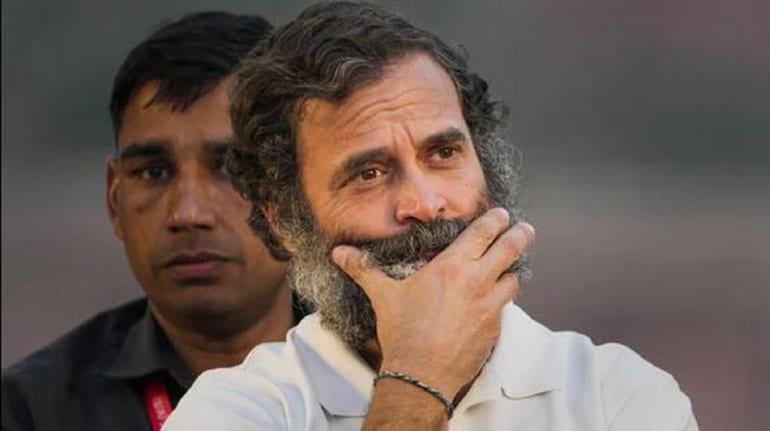



A plea has been filed in the Supreme Court (SC) challenging the validity of Section 8(3) of the Representation of the Peoples Act, 1951 under which Rahul Gandhi was disqualified.
The plea states that automatic disqualification “restrains the members from freely discharging their duties cast upon them by the voters of their respective constituency, which is against the principles of democracy”.
The petition further says the Supreme Court’s judgment in Lily Thomas v/s The Union of India should be re-examined. The ruling in the Lily Thomas case struck down Section 8(4) of the RPA, 1951 in 2013.
Also Read | How Rahul Gandhi's disqualification from Lok Sabha is like Indira Gandhi's expulsion from Parliament 44 years agoThe Act, under Section 8(4), allows a convicted Member of Parliament (MPs), Member of Legislative Assembly (MLAs) and Member of Legislative Council (MLCs) to continue in the post, provided he/she appealed against the conviction or sentence and obtain a stay from a higher court within three months of the date of judgment by a trial court.
The plea has been filed by Kerala-based social activist Aabha Muralidharan.
What does the plea state?According to the plea, factors such as nature, gravity, role, moral turpitude and the role of the accused, ought to be examined while considering disqualification under the Act. However, Section 8(3) provides for a blanket automatic disqualification, on the basis of the quantum of sentencing and imprisonment, which is self-contradictory and creates ambiguity in law.
Also Read | Look back into MPs and MLAs disqualified after convictionThe plea cites the example of sub clause (1) of Section 8 of the 1951 Act, which categorises the offences and their nature for disqualification and states that 8(3) runs contradictory to other clauses under Section 8.
According to the plea, the intent of the legislature while passing the Act, was to disqualify elected members, who are convicted for committing serious or heinous crimes. The plea notes that the grounds for disqualification should be specific with the nature of offences as specified under the Code for Criminal Procedure (CrPC) and not in a blanket form, as is currently in force applicable vide Section 8(3) of the 1951 Act.
The plea states that MPs are the voice of the people (voice populi). They represent the right to freedom of speech and expression of millions of supporters that got them elected. The privileges of the members are enshrined in the Constitution for this particular reason.
Also Read | I'm fighting for voice of India, ready to pay any price: Rahul GandhiAccording to the petition, the constitutional rights enjoyed by MPs is an extension of the voice of millions of their supporters. If defamation, which just technically has a maximum punishment of two years, is not removed from the sweeping effect of the judgment in Lily Thomas v/s The Union of India, it will have a chilling effect on the right of representation of citizens.
Discover the latest Business News, Sensex, and Nifty updates. Obtain Personal Finance insights, tax queries, and expert opinions on Moneycontrol or download the Moneycontrol App to stay updated!
Find the best of Al News in one place, specially curated for you every weekend.
Stay on top of the latest tech trends and biggest startup news.